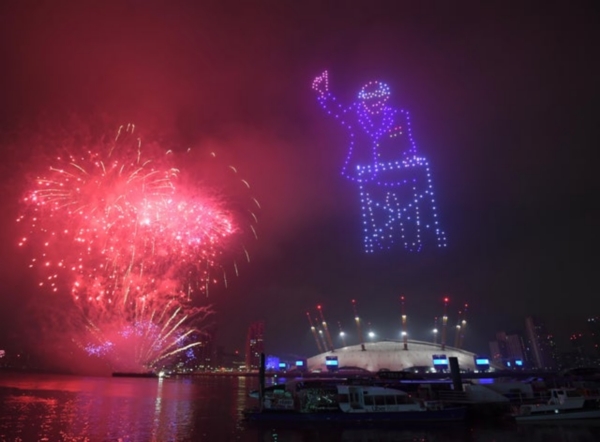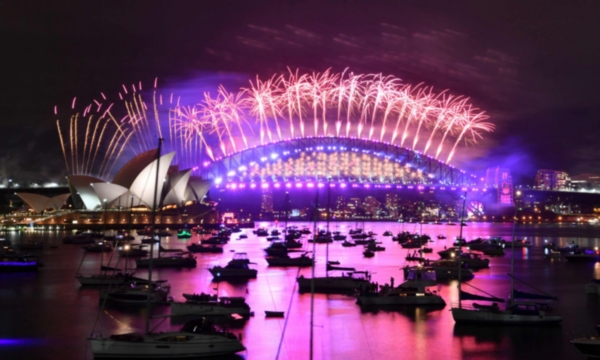Leviticus 225/84: Yes, today turned out better as Capt. Sir Tom promised!
Message from Boris .. For us one of the highlights today was to read Boris Johnston's Year of Hope article in the Daily Telegraph. Here was Boris back on form after what for him must have been the most burdensome year of his already eventful life. But here he was, ever the optimist telling us that no matter what's happened in 2020 the coming 12 months are going to be better. Better because Brexit and the subsequent Trade Agreement are done and because there are now 2 vaccines to inject if the NHS can rise to the occasion. "As you gaze of this January of continuing plague and privation you may be tempted to give way to despair, but let me offer you some grounds for thinking that this new year really is a year of change, and hope..... Maybe it would be unduly provocative to say the EU Treaty is cake-ist; but it's certainly from the patisserie … yet it certainly doesn't mean our friends in Europe have lost us let alone our massive appetite for their Maseratis or Gewurztraminer ….." "The second big success, the Oxford vaccine is a brilliant collaboration of state activism and free market capitalism which ensured the partnership with British firm AstraZeneca, lineal descendant of Brunner Mond and ICI ….. and with this cheap and effective UK made vaccine is creating the potential trampoline for the national bounceback. With every jab into the arms of the elderly and the vulnerable we are changing the odds. We are not there yet but we can see with ever growing clarity how we are going to get there."

Capt. Sir Tom ill-depicted as a drone … … though his tale has been endlessly repeated elevating him not only to the knighthood but to war hero status - which he never ever claimed. He served as everyone did and saw limited action in Burma. His elevation by the public was one of life's great surprises for him and the rest of us; but it gave many across the nation the opportunity to express their support through his 100 circuits of the back yard for the hard working staff in the NHS that would be more helpful than banging saucepans outside our front doors on Thursdays. There is an ever present danger that the deification of the NHS per se which was also recalled via the drones above the Millenium Dome in London can obscure its monumental shortcomings throughout the pandemic not least at its interface with social care. But those programmed drones are a mighty clever confection long time worthy of Dr Who, and we must increasingly expect to see them around with messages we can't avoid seeing. They were airborne in Edinburgh too but wisely avoided political comment.
How does the world celebrate a New Year? In the finest, now well established, ectypical tradition of these blogs I offer the following. Nearly the entire world recognizes New Year’s Day on the Gregorian calendar's January 1st. It takes the Earth 365.25 days to complete one revolution around the Sun so we celebrate 3 years every 365 days followed by a leap year of 366. The Chinese of course beg to differ, preferring to see the moon as their starting point - of which more later. Celebrations necessarily begin in the Pacific Ocean by dint of the Earth's rotation, with Samoa and Kiribati celebrating first. There's been a fair amount of gerrymandering of the International Date Line in the Pacific in recent years that's well worth recalling but it always leaves Hawaii last! Samoa and parts of Kiribati are in the world’s farthest forward timezone putting them at the same time as Hawaii except the date is one day ahead. Kiritimati, which is part of Kiribati and also known as Christmas Island, is perhaps the better known of the two. Kiritimati, home to nearly 6,500 people, used to be one of the last places to welcome the New Year until it skipped a day in 1994 to use being first as a tourist draw. 2021 is the 9th time people in Samoa are among the first to welcome the New Year as they changed their time zone at the end of 2011 to make it easier to do business with Australia and New Zealand. This unique group of countries lost a member in Tonga which by observing daylight savings time from 1999 until 2002 met its desire to be among the first countries to welcome the new millennium! The first
major city to welcome New Year is Auckland in New Zealand along with Fiji, Tonga and parts of Antarctica. But perhaps the most unique way to welcome New Year is aboard the International Space Station where astronauts have 15 opportunities to celebrate as they circle the globe at 17,500 miles per hour.
The ongoing COVID-19 pandemic means … … that many New Year’s Eve events have been cancelled for 2021 but not what is traditionally now one of the biggest in Sydney where a massive fireworks display is presented over the famous Harbour Bridge and Opera House. Another major event now vies for most spectacular at the world’s tallest building, the Burj Khalifa, in Dubai.

Proper observations include … ...not just fireworks and now drones! Here's a selection from around the world: Kiss at midnight the one person you hope to keep kissing the rest of the year; Make noise by ringing bells, horns, blasting, or pistol shots; In the Netherlands they toast the New Year with spiced wine, with wassail in England and with champagne in the United States. Resolutions are not a modern tradition. The Babylonians made commitments to return borrowed objects and to pay old debts.
It's been celebrated for millennia but during Babylonian times there was no Gregorian January 1st. The first new moon after the vernal equinox once ushered in the New Year with festivities in Martius/March, the first month in the early Roman calendar containing only ten months. King Pompilius, second King of Rome after Romulus, added the months Januarius [after Janus, the pagan God of Gates, Doors and Beginnings] and Februarius. [It was Julius Caesar who created the Julian calendar, which most closely resembles the Gregorian calendar a majority of the world follows today.] When celebrating the first day of the appropriately named month of January Romans made sacrifices to Janus giving gifts amidst general revelry. With his two faces, the God Janus was able to look toward the past and forward to the future.
So how do the Chinese compute New Year? Chinese New Year begins with the 1st day of the lunar calendar or Qingming Festival. Because it depends on the moon the date changes each year but will always fall some time between 21st January and 20th February. Celebrations traditionally last 15 days until the Lantern Festival with the year's first full moon although working considerations in modern times tend to limit it to a fortnight.
Fine Dining too at The Lodge. The day's Menus were Haggis and vegetable soup with a generous taste of chilli for lunch; and Chorizo styled Sausage Casserole for supper. That certainly passed the test of 'beyond turkey leftovers'. But we do still have much cheese and water biscuits to get through. I have formally commenced my small single glass of wine discipline at supper accompanied by a glass of mineral water - in the spirit of two faced Janus looking both ways. Crisps and nuts did not figure yet replaced by tea and Christmas cake ….
Published Date: January 1st 2021
|





